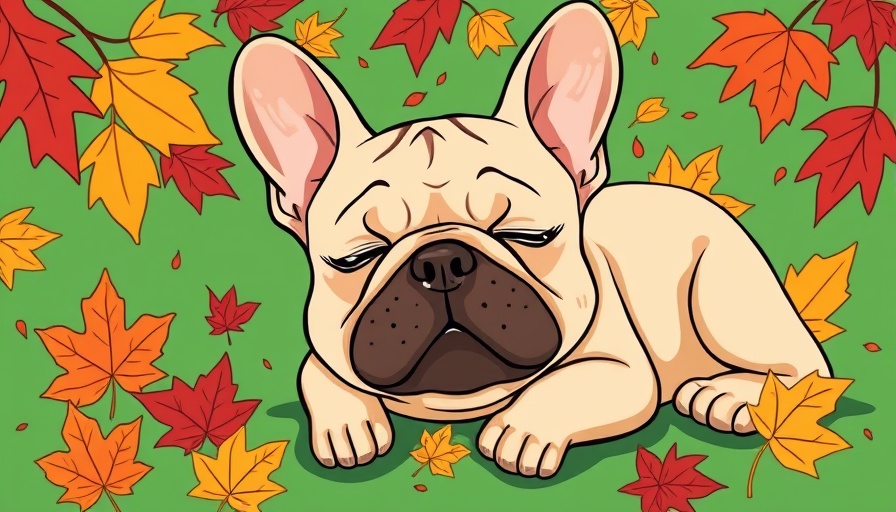
Why Your Dog's Sneezing is More Than Just Cute
If you've ever found yourself chuckling at your dog's adorable sneeze, you’re not alone! Many dog owners revel in the delightful sounds their furry companions make. However, when those sneezes become frequent, it's essential to discern if they signify something more than just playful behavior.
Understanding Dog Communication Through Sneezing
Dogs have a unique way of expressing themselves, and sneezing can be an essential part of their communication toolkit. Often, a "play sneeze" occurs when your pup is expressing excitement or joy during playtime. This type of sneeze reassures other dogs that everything is fun and games. It’s a canine version of a smile or a wagging tail!
Imagine a group of dogs at the park. One dog sneezes while bowing and wagging its tail – essentially saying, "I’m just playing, no need to get serious!" Recognizing this playful trait can help you differentiate between harmless sneezes and those that might indicate a health concern.
Allergies: The Hidden Culprit Behind Your Dog’s Sneezes
Just like humans, dogs can experience allergies that lead to sneezing. Seasonal allergens like pollen, dust, and mold can trigger sneezing fits, especially notable during spring or fall. If you realize your dog’s sneezing escalates during these times or after outdoor excursions, food-related allergies might be in play.
Moreover, irritants in the home such as dust mites, common household cleaners, perfumes, and even cigarette smoke can inflame your dog's nasal passages. Watch for accompanying symptoms like watery eyes or itching; these could indicate allergies or environmental issues needing attention.
Recognizing Serious Health Issues: When to See a Vet
While most dog sneezes are cute, persistent or sudden sneezing can signal something more significant. For instance, if your dog has sneezing accompanied by coughing, a runny nose, or facial swelling, it’s time to consult your veterinarian. Conditions such as nasal infections, dental disease, or even nasal tumors can escalate quickly, making early detection crucial.
Breeds like Bulldogs, Pugs, and Shih Tzus might experience sneezing more frequently due to their compact facial structures. If your pup belongs to one of these breeds and you notice unusual sneezing patterns, it’s prudent to have them examined by a vet.
Tips for Pet Parents: Managing Sneezing and Allergies at Home
As a pet parent, keeping your dog comfortable is a top priority. Here are some practical insights! First, consider keeping your home dust-free and utilizing air purifiers to minimize irritants. Regular vacuuming and using pet safe cleaning products can significantly reduce allergy symptoms.
Monitor your dog's environment closely; avoiding walks during high pollen days can also alleviate seasonal allergies. If you suspect specific food allergies, consult your vet for guidance on appropriate dietary changes that can help eliminate sneezing and other allergy symptoms.
Emotional Connections: Understanding How Sneezing Affects You and Your Dog
Sneezing, while often amusing, can serve as a connection point between you and your furry friend. Being attentive to their health means understanding their communications and behaviors deeply. Treat your dog’s sneezes not just as physical phenomena but as signals of emotions, health, and happiness.
While it’s easy to laugh off a sneeze as adorable, stays vigilant. By learning the reasons behind your dog's sneezes, you'll foster a deeper bond and understanding of your pet’s health needs. Remember, every puzzle piece contributes to the overall picture of well-being for your beloved companion.
 Add Row
Add Row  Add
Add 




Write A Comment